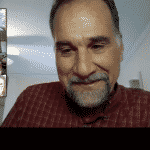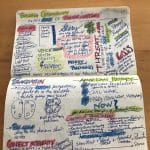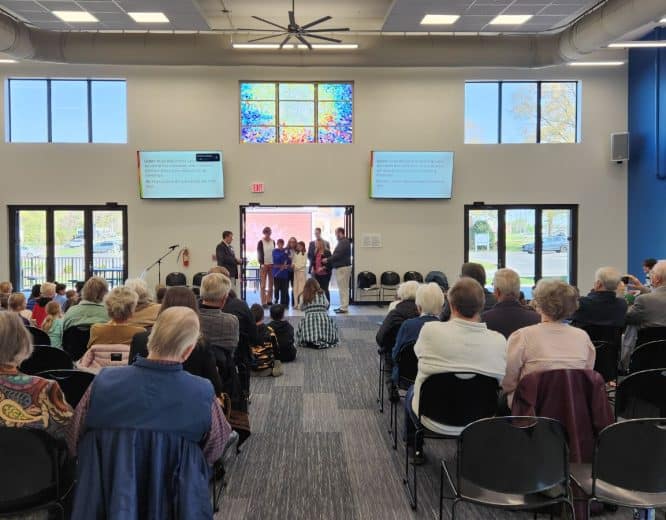Called to Build Community in Polarized Times
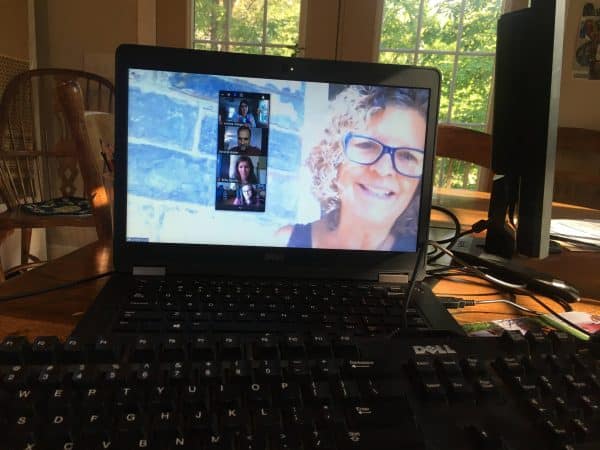
Focusing on relationships is key to de-escalating tensions in contentious times. This was the takeaway that faculty and staff heard during a seminar — held virtually via Zoom — on building community in times of polarization on August 20, before students returned to school.
David Brubaker, organizational consultant and dean of the school of social sciences and professions at Eastern Mennonite University, facilitated. “Polarization,” he explained, “is the result of escalating conflict” in any human system: country, region, business, church, school, and family.
Brubaker’s historical review of conflict in the United States provided sobering and helpful insight, confirming that there is good reason to practice building relationships at this point in history. On a scale of 1 to 5, polarization moves from 1 being a “problem to solve” to disagreement, contesting points of view, fight or flight, and, at 5, an “intractable situation.”
In US history, he noted, the country has moved to violent level 5 conflict at least twice: the Revolutionary War and the Civil War. In the late 1960s, the country was at a very high level 4 and could have tipped into 5, he contends, with unrest related to the Vietnam War and the Civil Rights Movement.
And today, Brubaker and other analysts he has consulted believe, the United States is again at a high level 4 and could tip toward 5.
Among the drivers of polarization that Brubaker noted: economic stratification, racial inequity, sexism and gender inequity, differing moral universes, and people feeling their identity is threatened. Also necessary are leaders on either end of the political spectrum who can articulate the grievances that people are feeling and attribute blame.
Practicing a “depolarizing presence”
“There are no quick fixes to these problems,” Brubaker said. “We have to acknowledge how these factors affect our community and respond in a counter cultural way with dignity for all involved.”
One way to assure dignity for all, is to create space for minority voices to be heard. In the classroom, teachers can watch for those who aren’t speaking up and invite them to speak. “Those who are in leadership roles can also invite disagreement,” he said. Hearing all perspectives is healthy for everyone and creates empathy for people behind issues.
“It doesn’t mean you give up your convictions,” he noted. You can be “hard on issues, but soft on people.”
And then, it’s important to build bridges between people with varying perspectives. Eliciting stories is a good way to build bridges. “Ask, ‘Can you tell me what experience in your life led you to hold the position you now hold?’ There are reasons people end up at different places,” he said.
“As we head into election season, we wanted to create space for healthy dialogue and practice skills for listening well while remaining true to our own convictions,” explained Paul Leaman, head of school, who invited Brubaker to the conference. As always, Leaman noted, EMS joins school with families and faith communities as students develop and express their values and convictions.
School leadership hopes that the seminar will help to create a school-wide culture that allows for differing opinions among students, faculty and staff, while remaining respectful and connected with each other.
Navigating Controversial Issues Policy
As a follow up to the seminar, Maria Archer, K-8 principal, presented an updated school-wide policy, “Navigating controversial issues.”
A “controversial issue” is defined as an area of significant inquiry about which substantial segments of the community, the constituency, and/or the church hold sincere conflicting points of view.
EMS believes that controversial issues should be fairly explored — in developmentally appropriate ways — in a spirit of honesty and openness, so that individuals students may recognize the validity of other points of view and learn to formulate their own opinions based on objective study and discussion of facts underlying the controversy.
EMS does not seek to deconstruct a student’s value system, but build on it within the values and traditions of the student’s family and church community.
Teachers are responsible to:
– Create a culture of trust and safety where basic human rights are honored and where varied perspectives are heard with respect.
– Present fully and fairly the means for students to study, consider and discuss varied perspectives related to controversial issues.
– Facilitate full discussion, providing the student the right to respectfully disagree with the opinion of another, while encouraging other students to base their disagreements on fact.
– Inform parents when controversial topics are selected as an intentional curricular unit so we can be transparent in our purpose of understanding a variety of human perspectives.
– Assure that no student jeopardizes their relationships with peers, their instructors or the school by expressing their views.
– Stop hate speech or judgmental language, and address the hurt of the victim first, seeking input from school counselors or principals as needed.
– Be sensitive and responsive to students who may be “triggered” by a particular topic, and refer to a principal or counselor for support.
– When expressing personal perspectives, teachers should do so with an attitude of humility and personal ownership, naming that “this is my personal perspective and I don’t have all the answers.”
In all situations, teachers are called to uphold the EMS vision to “reflect Christ’s light as a learning community where every student belongs, thrives, and lives God’s call.”
